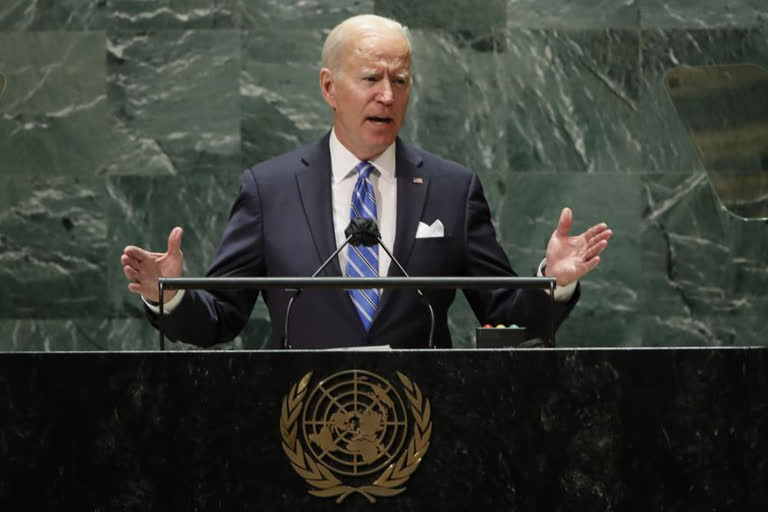United Nations: President Joe Biden used his first address before the U.N. General Assembly on Tuesday to declare that the world stands and at an “inflection point in history” and must move quickly and cooperatively to address the festering issues of the COVID-19 pandemic, climate change, and human rights abuse.
Amid growing China tensions Biden also declared the U.S. is “not seeking a new Cold War.”
Without mentioning China directly, Biden acknowledged increasing concerns about rising tensions between the two nations. But he said, “We are not seeking a new Cold War or a world divided into rigid blocs.”
The president noted his decision to end America’s longest war last month, in Afghanistan, and set the table for his administration to shift U.S. attention to intensive diplomacy with no shortage of crises facing the globe. He said he is driven by a belief that “to deliver for our own people, we must also engage deeply with the rest of the world.”
“We’ve ended 20 years of conflict in Afghanistan,” Biden said. “And as we close this period of relentless war, we’re opening a new era of relentless diplomacy of using the power of our development aid to invest in new ways of lifting people up around the world.”
Biden, who arrived in New York on Monday evening to meet with Secretary-General Antonio Guterres ahead of Tuesday’s address, offered a full-throated endorsement of the body’s relevance and ambition at a difficult moment in history.
The president, in brief remarks at the start of his meeting with Guterres, returned to his mantra that “America is back” — a phrase that’s become presidential shorthand meant to encapsulate his promise to take a dramatically different tack with allies than predecessor Donald Trump. In his remarks, he declared the United States was “back at the table.”
“We will lead not just with the example of our power but God willing with the power of our example,” Biden said Monday night.
But the president was facing a healthy measure of skepticism from allies during his week of high-level diplomacy. The opening months of his presidency have included a series of difficult moments with friendly nations that were expecting greater cooperation from Biden following four years of Trump’s “America first” approach to foreign policy.
Read: White House hopeful of Modi-Biden first bilateral meeting in US
(AP)



